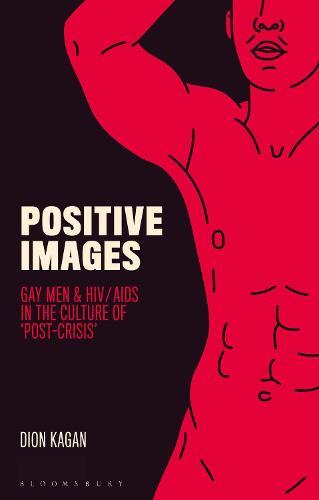Full Product Details
Author: Dion Kagan (LaTrobe University, Australia)
Publisher: Bloomsbury Publishing PLC
Imprint: I.B. Tauris
Dimensions:
Width: 13.80cm
, Height: 2.50cm
, Length: 21.60cm
Weight: 0.510kg
ISBN: 9781784534196
ISBN 10: 1784534196
Pages: 320
Publication Date: 05 April 2018
Audience:
College/higher education
,
Tertiary & Higher Education
Format: Hardback
Publisher's Status: Active
Availability: Manufactured on demand

We will order this item for you from a manufactured on demand supplier.
Reviews
In this landmark study of the representation of gay men in contemporary popular culture, Dion Kagan shows how the panicked response to AIDS during the 1980s continues to haunt post-crisis gay life, unsettling its normalisation by resuscitating the association of homosexuality with death and disease. In a series of carefully elaborated case studies drawn from the mainstream media and informed by feminist and queer theory, Kagan traces the transformation of HIV/AIDS into a signifier of social and sexual backwardness that conflicts with the normative aspirations of neoliberal gay identities. -- Robert J. Corber, William R. Kenan Jr, Professor in American Institutions and Values, Trinity College, Connecticut, USA In this erudite analysis of representations of Western gay life in postcrisis times, Dion Kagan re-activates the critical energies of early HIV cultural analysis for contemporary queer theory to ask what a positive image of gay life could possibly be in the current polarised environment that lurches between progressive attachments to clean, upstanding, respectable, sexless marrying types and the sensationalised monsters of chemsex, barebacking, HIV-positive sex and sex addiction, each of which emerge as figures of a retrograde sexuality we should have grown out of by now that effectively serve to re-crisis the present. Generous and expansive in its critical engagements, while sparkling throughout with astute and perceptive readings, Positive Images is a remarkable feat of intergenerational queer kinship that introduces an exciting new voice in sexuality scholarship. -- Kane Race, Associate Professor in Gender and Cultural Studies, University of Sydney, Australia
`In this landmark study of the representation of gay men in contemporary popular culture, Dion Kagan shows how the panicked response to AIDS during the 1980s continues to haunt post-crisis gay life, unsettling its normalization by resuscitating the association of homosexuality with death and disease. In a series of carefully elaborated case studies drawn from the mainstream media and informed by feminist and queer theory, Kagan traces the transformation of HIV/AIDS into a signifier of social and sexual backwardness that conflicts with the normative aspirations of neoliberal gay identities'. - Robert J. Corber, William R. Kenan, Jr. Professor in American Institutions and Values, Trinity College, Connecticut, `In this erudite analysis of representations of Western gay life in `post-crisis' times, Dion Kagan re-activates the critical energies of early HIV cultural analysis for contemporary queer theory to ask what a `positive image' of gay life could possibly be in the current polarized environment that lurches between `progressive' attachments to clean, upstanding, respectable, sexless marrying types and the sensationalized monsters of chemsex, barebacking, HIV-positive sex and sex addiction, each of which emerge as figures of a `retrograde' sexuality we `should have grown out of by now' that effectively serve to `re-crisis' the present. Generous and expansive in its critical engagements, while sparkling throughout with astute and perceptive readings, Positive Images is a remarkable feat of inter-generational queer kinship that introduces an exciting new voice in sexuality scholarship'. - Kane Race, Associate Professor in Gender and Cultural Studies, The University of Sydney
Author Information
Dion Kagan is an early career academic and arts writer who works on film, theatre, sex and popular culture. He lectures in gender, sexuality, screen and cultural studies at Melbourne University, Australia and at the Australian Research Centre for Sex, Health and Society, at LaTrobe University, Australia.




